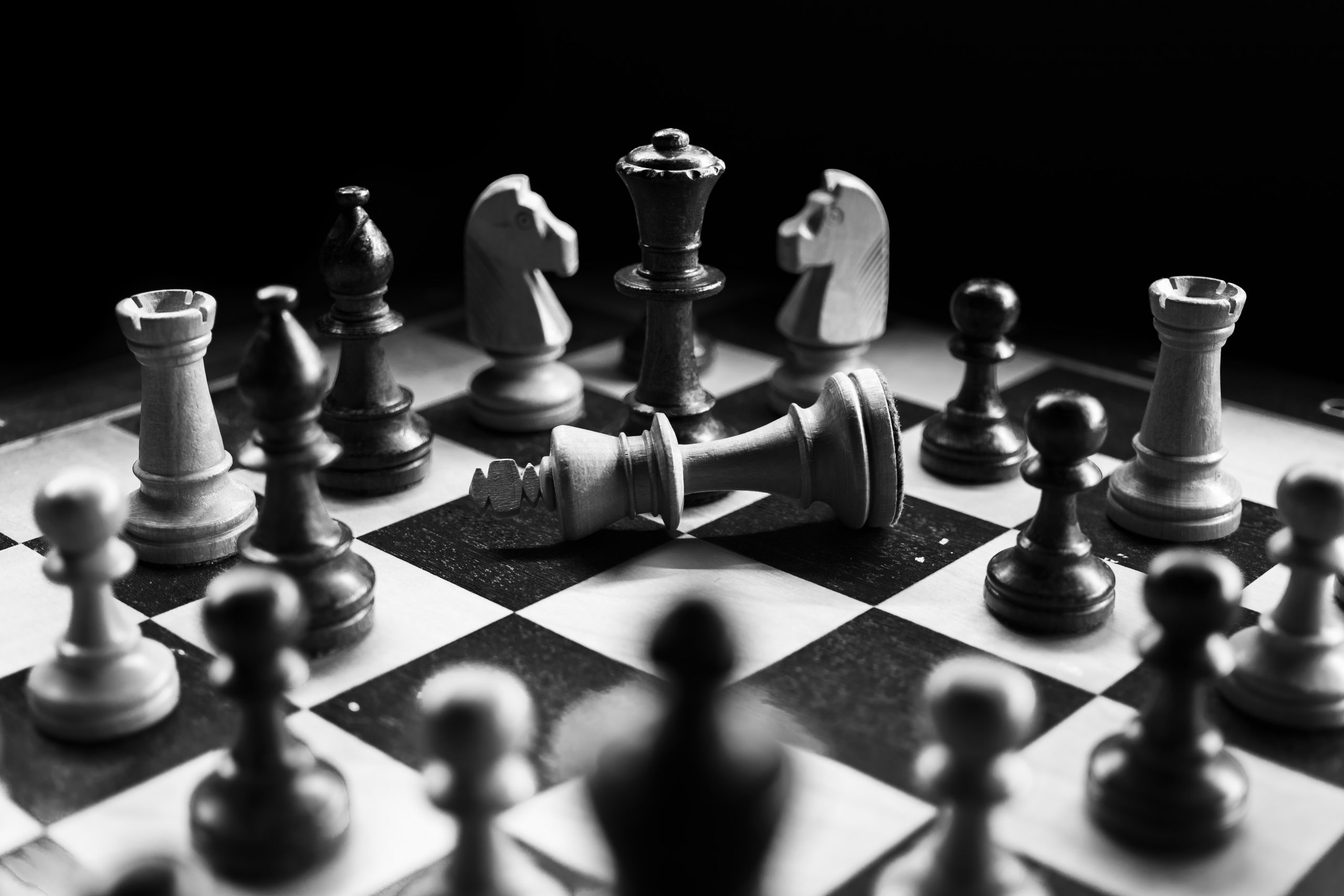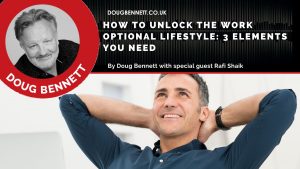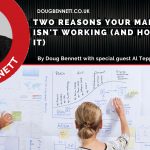How Your Willingness To Evolve Can Make Or Break Future Generations

By Doug Bennett, with special guest Phil Johnson
Is one of your overarching goals to develop your emotional intelligence? If it isn’t, add it to your list immediately.
In a recent conversation with Phil Johnson, Founder and CEO of Master of Business Leadership (MBL) Program, he told me that as a population we’re destroying the planet, and have only seven to ten years to slow down the devastating effects that future generations are going to experience.
His claim might sound dramatic, but the reality is that you and I, and everyone around us, have the opportunity to grow and evolve by stepping out of our comfort zones.
You can hear my conversation with Phil on our two-part Goals Do Come True podcast by clicking here and here.
In this blog, we’re going to explore the three ways we inhibit the growth of our emotional intelligence (your awareness of yourself and other people), and what to do about it.
Why emotional intelligence matters
Phil: “The development of your emotional intelligence will lead to career and personal success, revenue growth, higher levels of engagement, inspirational leadership, trust and stability. We’re experiencing exponential change in the world and we’ve got a 500 million-year-old brain that doesn’t like change. We need to change our trajectory dramatically in the next two decades for our survival.
In this century, some scientists estimate that we’re going to experience the equivalent of 20,000 years’ worth of change. We are all being ripped out of our comfort zones whether we like it or not. That’s going to create unimaginable levels of drama, chaos and conflict. And the only shot we’ve got at surviving the century as a species is the development of our emotional intelligence and thinking about everybody, not just ourselves.”
Phil is calling for each of us to accept accountability for our actions and wake up to the fact that we have the power to make a difference to the future now.
What forces change?
Phil: “There will be times in your life that have forced you to step out of your comfort zone, and times when your desire for something different was greater than your fear.”
If you’ve read one of my books (click here), you’ll know that I was way out of my comfort zone during the global financial crisis in 2008 to 2009. I was on the edge of financial oblivion and in a lot of debt with a massive mortgage. It was frightening.
I didn’t want to have my house repossessed; my wife would have been devastated and my late mother would certainly not have been proud of me. The hardship forced me to use all the emotional resources I had (and develop more) to turn the situation around.
Phil also explained that people are motivated by the will to move away from pain or towards pleasure, but most people don’t move out of their comfort zone unless they have to (e.g. a painful situation demands change).
3 main obstacles that stop us developing our emotional intelligence
There are three main reasons we resist change:
1) We enter into fight, flight or freeze mode
Phil: “Whenever we take action that causes us to move outside of our comfort zone, part of our brain (the amygdala) secretes stress hormones into the bloodstream and we move into fight, flight or freeze mode. When we do this in business or personal situations, relationships die and we burn trust. Think of your amygdala as a frightened child: when you develop your emotional intelligence, it’s like you bring in an older sibling to calm the response down – without it, you’re stuck in the comfort zone, too afraid to venture out.”
2) Our existing habits are strong
Phil: “Once we develop a habit, it becomes a neural pathway in our brain. We rely on our habits to determine our behaviour and our results. Even though we can develop new habits at any age, those new habits will be weaker than our old habits, so there’s always likely to be a battle for dominance between our old habits and our new habits.
Our existing habits are resistant to change. Because so many of them are ingrained in us we waste energy without questioning whether it’s a habit that supports us or not. We have to replace the energy we lose by trying to steal energy from other people; that dynamic is going on inside of everybody, everywhere, all the time. This is the root cause of all drama, chaos and conflict everywhere in the world.”
3) The people around us don’t want us to change
Phil: “The third source of resistance to change is sociological; people around us don’t want us to change because if we start to get better results, they feel that they have to change, and that scares the hell out of them. The best way to ensure they don’t have to change is to make sure we fail, so they try to steer you back into the herd; this often happens at an unconscious level.”
If I hadn’t experienced financial insecurity, it’s hard to know if I would have felt as motivated as I did to change my habitual behaviour and take massive action.
The responsibility lies in our hands
Phil shared a rousing call to action.
Phil: “Hardly anybody is in enough pain to do the emotional labour. Instead they try to use position-based power to control and manipulate others to get them to change; that’s been going on for thousands of years. This creates a problem because the only way to develop your emotional intelligence is by going outside your comfort zone and going through the terror and emotional labour it takes to create change. Reading books or setting goals is an intellectual process; it will do nothing to build your emotional intelligence.
We’re the generation of leaders we’ve been waiting for. We can’t keep pushing the responsibility down the road; we have to change our trajectory right now, today – not next week, right now. We’re going to have to work hard for our own survival and the survival of future generations. We have to care more about ourselves and each other than we do, and we have to stop allowing our fear to control our actions.”
Phil also explained that, to him, the purpose of life is to raise your level of consciousness in response to the challenges you face. If you put up defensive walls around you, you give away more of your energy because you become more judgemental, resistant and blind to the power that you have to create change.
Fear, resistance and judgement get in the way and create conflict. Phil concluded with an urgent reminder about why personal change is so important.
Phil: “The model we’ve been pursuing says, ‘I don’t care about you, I only care about me,’ but at the end of the day that ego-based fear is destroying the planet. You have to change now by getting out of your comfort zone and developing your emotional intelligence.”
The next steps
Having reflected on what Phil has shared, how do you feel about staying in your comfort zone? Are you ready to break out and do what it takes to build emotional intelligence and create a more peaceful world? Are you ready to put in the time and effort?
Do you feel motivated by pain or driven by passion?If you’re in a position to start taking action, why not click here to book a discovery session with me and find out how I can support you. If Phil is right, which I don’t doubt, it’s not just your future that stands to benefit.




